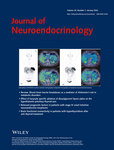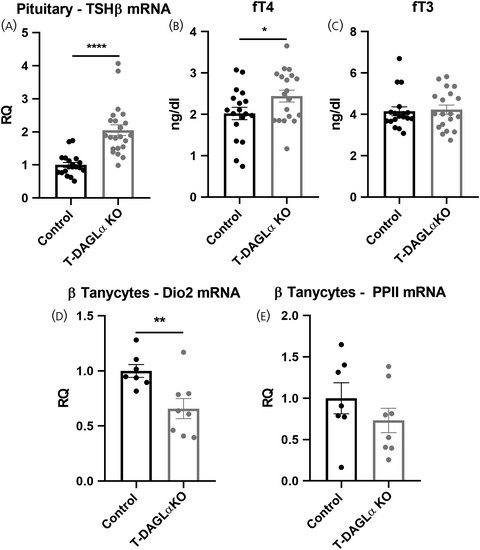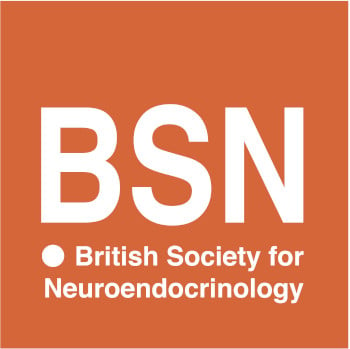Journal list menu
Export Citations
Download PDFs
ISSUE INFORMATION
FUNDAMENTAL AND MECHANISTIC NEUROENDOCRINOLOGY
REVIEW ARTICLE
Breakdown of the blood–brain barrier: A mediator of increased Alzheimer's risk in patients with metabolic disorders?
- First Published: 05 December 2021
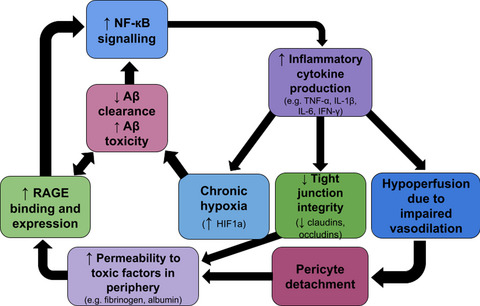
This review summarizes the components of the blood–brain barrier (BBB), mechanisms through which metabolic disorders alter BBB permeability via immune and metabolic pathways, the contribution of BBB dysfunction to the manifestation and progression of Alzheimer's disease, and current avenues of therapeutic research that address BBB permeability.
ORIGINAL ARTICLES
Tanycyte specific ablation of diacylglycerol lipase alpha stimulates the hypothalamic-pituitary-thyroid axis by decreasing the endocannabinoid mediated inhibition of TRH release
- First Published: 17 December 2021
Tibolone restrains neuroinflammation in mouse experimental autoimmune encephalomyelitis
- First Published: 09 December 2021
Tibolone, a synthetic estrogenic compound with tissue-specific actions, reversed the astrocytic and microglial reaction, reduced the hyperexpression of TLR4 and HMGB1 as well as NLRP3-caspase 1-IL-1β inflammasome activation. Tibolone also limited white matter demyelination. Tibolone represents a promising agent for the attenuation of MS-related inflammation.
Progesterone receptor-Src kinase signaling pathway mediates neuroprogesterone induction of the luteinizing hormone surge in female rats
- First Published: 30 November 2021
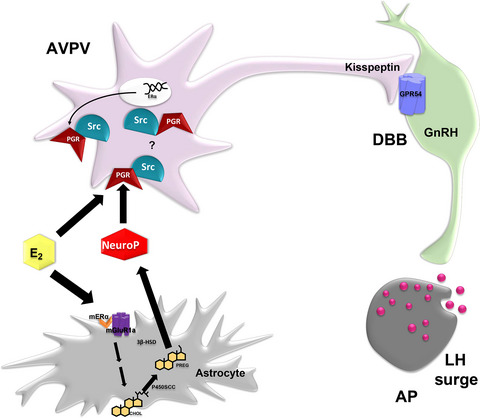
Estradiol stimulated synthesis of neuroprogesterone (neuroP) by hypothalamic astrocytes is a key feature of “estrogen positive feedback” inducing the surge release of luteinizing hormone that triggers ovulation. Estradiol induced classical progesterone receptors (PGR) and PGR-Src tyrosine kinase (Src) complexes. The luteinizing hormone surge was demonstrated to be dependent on PGR-Src signaling in the RV3P region of the hypothalamus.
TRANSLATIONAL AND CLINICAL NEUROENDOCRINOLOGY
ORIGINAL ARTICLES
Duodenal neuroendocrine neoplasms with unexpectedly aggressive behaviour: Challenging the “watch and wait” approach
- First Published: 24 November 2021
Relevant prognostic factors in patients with stage IV small intestine neuroendocrine neoplasms
- First Published: 08 December 2021
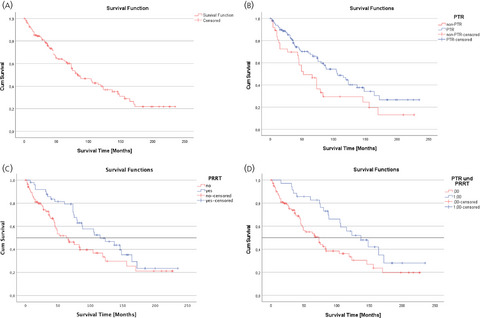
Kaplan-Meier survival curve of (A) all patients, median OS 84 months, (B) patients with PTR or none, median OS 106 versus 52 months, p = 0.024, (C) patients with PRRT versus no PRRT, median OS 115 versus 63 months p = 0.035 and (D) patients with PTR+PRRT versus the rest, median OS 137 versus 73 months p = 0.013
Brain functional connectivity in patients with hyperthyroidism after anti-thyroid treatment
- First Published: 05 December 2021




